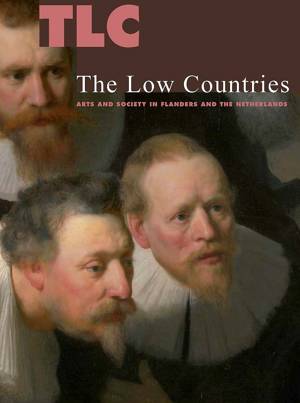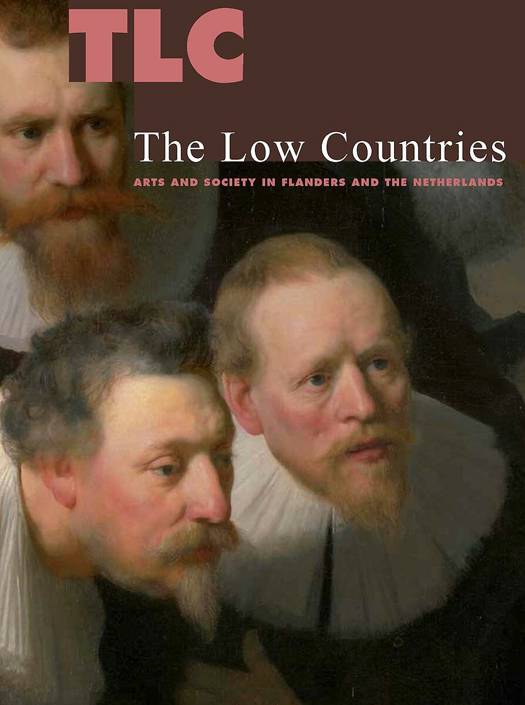
- Retrait gratuit dans votre magasin Club
- 7.000.000 titres dans notre catalogue
- Payer en toute sécurité
- Toujours un magasin près de chez vous
- Retrait gratuit dans votre magasin Club
- 7.000.0000 titres dans notre catalogue
- Payer en toute sécurité
- Toujours un magasin près de chez vous
The Low Countries
Arts and Society in Flanders and the Netherlands
Dirk Van Assche, Manfred Sellink
Livre | Anglais
37,00 €
+ 74 points
Description
“About suffering they were never wrong, The old Masters”
Dutch and Flemish Artists around the Globe
On 20 January 2017, a mural appeared on Boulevard Barthélémy on the Canal in Brussels, of an imminent beheading. The knife and the fear on the face of a child in the depicted scene raised a furore. People thought of IS executions, and panicked.
Until it transpired that the anonymous street artist responsible had copied a section from a Caravaggio painting, The Sacrifice of Isaac (1603). The hand with the knife belongs to Abraham, a father who is about to murder his son. The hand on Abraham’s arm, holding him back, belongs to the angel, to whom Abraham surrenders at the last moment.
As if to say – since an understanding of traditions, in this instance of painting, the Bible, radically changes both perception and experience of the image –, it’s all about the context, stupid. Panic
and indignation give way to uncertainty and hesitation. The complexity of the images invites us to think. Our judgement no longer comes down like an axe, but is suspended.
Art, like everything really, exists in context: every thing refers to other things, from the past or from elsewhere. Artists always build on the work of their predecessors. That network provides a frame of reference.
It is therefore worth our while to keep learning more about the canon, traditions, the history of Christianity and the history of art, for example. Because the Old Masters were never wrong about suffering… nor about so much else.
This yearbook aims to present to the world the culture and society of the Dutch-speaking area which encompasses both the Netherlands and Flanders, the northern part of Belgium. The articles survey the living, contemporary culture of the Low Countries, as well as their cultural heritage.
In these pages you will find everything you always wanted to know about ‘this undigested vomit of the sea’ as a British metaphysical poet once called the Low Countries. They are at the very heart of Europe, the intersection of North and South, of the Latin and Germanic worlds.
Dutch and Flemish Artists around the Globe
On 20 January 2017, a mural appeared on Boulevard Barthélémy on the Canal in Brussels, of an imminent beheading. The knife and the fear on the face of a child in the depicted scene raised a furore. People thought of IS executions, and panicked.
Until it transpired that the anonymous street artist responsible had copied a section from a Caravaggio painting, The Sacrifice of Isaac (1603). The hand with the knife belongs to Abraham, a father who is about to murder his son. The hand on Abraham’s arm, holding him back, belongs to the angel, to whom Abraham surrenders at the last moment.
As if to say – since an understanding of traditions, in this instance of painting, the Bible, radically changes both perception and experience of the image –, it’s all about the context, stupid. Panic
and indignation give way to uncertainty and hesitation. The complexity of the images invites us to think. Our judgement no longer comes down like an axe, but is suspended.
Art, like everything really, exists in context: every thing refers to other things, from the past or from elsewhere. Artists always build on the work of their predecessors. That network provides a frame of reference.
It is therefore worth our while to keep learning more about the canon, traditions, the history of Christianity and the history of art, for example. Because the Old Masters were never wrong about suffering… nor about so much else.
This yearbook aims to present to the world the culture and society of the Dutch-speaking area which encompasses both the Netherlands and Flanders, the northern part of Belgium. The articles survey the living, contemporary culture of the Low Countries, as well as their cultural heritage.
In these pages you will find everything you always wanted to know about ‘this undigested vomit of the sea’ as a British metaphysical poet once called the Low Countries. They are at the very heart of Europe, the intersection of North and South, of the Latin and Germanic worlds.
Spécifications
Parties prenantes
- Auteur(s) :
- Editeur:
Contenu
- Nombre de pages :
- 320
- Langue:
- Anglais
- Illustré:
- Oui
Caractéristiques
- EAN:
- 9789079705290
- Date de parution :
- 10-04-18
- Format:
- Livre
- Dimensions :
- 170 mm x 235 mm
- Poids :
- 865 g

Les avis
Nous publions uniquement les avis qui respectent les conditions requises. Consultez nos conditions pour les avis.






